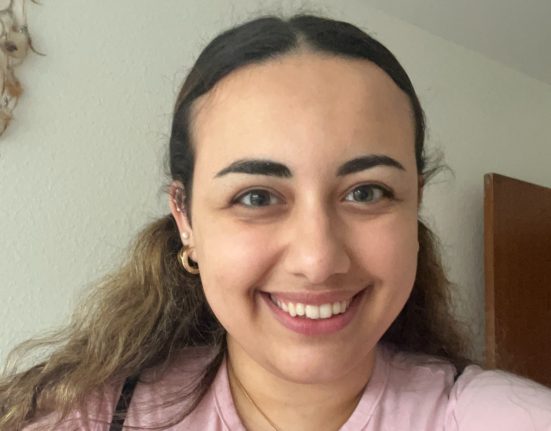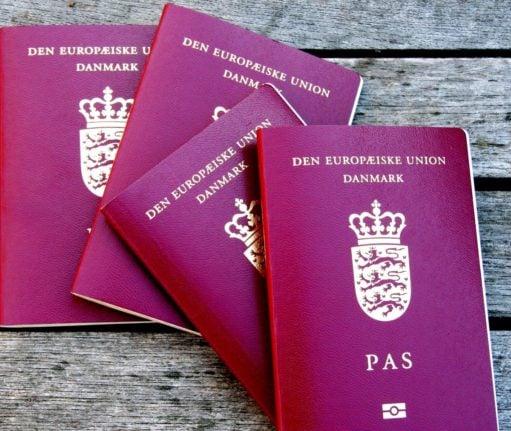Her father, like her a stateless Palestinian, came to Denmark three years before his wife and children, and that was long enough for him to decide that rather than live in an area with a large immigrant population, his family would be better off among Danes.
So when she came to Denmark, it was straight to Glesborg, a coastal village with a population of 600 an hour north of Aarhus.
“The life there and the environment was much better than in a ‘ghetto area’ and the village was welcoming and sweet, so we felt at home,” she remembers. “We were the only ones who weren’t Danes, and that made us feel like Danes, because everything we did was what normal Danish people did. I only made Danish friends and I talked Danish all the time, so my Danish is just like a Dane’s.”
It was only when she got older that she realised the disadvantages she faced as a stateless person, with nothing but a grey Danish alien passport to use for travel.
“It’s very frustrating because I’m doing everything right and I’m following the rules. I’m working, I’m in education, I’m helping with my organisation, and still it’s not enough. I still can’t get a Danish passport. I still can’t call myself a Dane.”
READ ALSO:
- Why young people born in Denmark can be denied citizenship
- Do children born in Denmark automatically get Danish citizenship?
- The difference between getting Danish citizenship and permanent residency
She has permanent residency, so has no problems working or studying in Denmark.
But to become eligible to apply for citizenship, under the rules she will need to work at least 36 hours a week for four years. This means that as she will be at university training to be a teacher for the next three years, she will probably have to wait seven more years before she can apply.
“I had to choose between education and work and I chose my future, to get an education and then to work,” she says.
For her younger sister, the situation is easier. She does not have to work full-time for four years to become eligible, as she arrived in Denmark when she was seven years old, a year ahead of the eight year mark, after which applicants need to meet the full-time work criterion.
Malak can travel all around the European Union with her Alien passport, visiting relatives in Sweden and Germany, but as soon as she wants to go anywhere else, it is difficult.
“I can travel to countries, but I have to apply for a visa, and it’s very hard because I have to wait. So if I want to go on a quick vacation, let’s say to England, then I have to apply for a visa and it can take up to three months before I get an answer, so if I just want to go on a weekend trip or a week’s vacation, it’s impossible.”
If she became a citizen it would change the way she feels about her life in Denmark she says.
“It will mean that I can vote, that I can actually have an influence on what happens in that country where I live,” she said. “Right now I feel like I have a hole in me, which says: ‘You are not enough. No country wants you and that is why you are stateless.’ If I get Danish citizenship, I will finally have somewhere I can call home.”
Now she’s a student, she has decided to start campaigning on the issue, in March joining the board of Fair Statsborgerskab, the campaign group formed in 2020 to push for changes to Denmark’s strict citizenship laws and fairer application of them.
Her friend, Farid Sahel, who was on the board, convinced her to join and she is now working with social media communication for the organisation.
For her, the biggest unfair treatment she wants to challenge is the the way all new citizenships awarded each year are sifted through by the Danish Parliament’s Naturalisation Committee, which is chaired by Mikkel Bjørn, an MP for the far-right Danish People’s Party, which has broad powers to grant or deny citizenships .
“I have heard that as soon as they hear the name Mohammed or Fatima, or any other name that’s not, like from Holland or Sweden. They say no,” she says. “If I could change anything right now, I think it would be to make all those laws the same as, let’s say, America. It should just be a law where you have to fulfil criteria.”
But the group is also raising the profile of the issue, last week holding a protest outside the Danish Parliament to coincide with Citizenship Day, the day when new Danish citizens are celebrated.
READ ALSO: Danish-born non-citizens call for change to country’s citizenship rules
Ahmad says that the older she gets, the more conscious she is of the anti-immigrant racism which exists in Denmark.
“When I was a little girl, I didn’t notice it, because I didn’t get what people were saying or I didn’t see how it was racism. But now I am 21 years old. If people treat me differently from my friends, that is my Danish friends, and we do exactly the same things, then it’s because of racism, because I have a different skin tone and I come from other countries.”
But it doesn’t make her like Denmark any less.
“Right now, I see Denmark as a great country. I see it as a country where I can be happy and I can live with my family and my Danish best friends and I can work here,” she says. “And if I can be a Dane, then I will see myself as a part of the Danish people.”



 Please whitelist us to continue reading.
Please whitelist us to continue reading.
Member comments